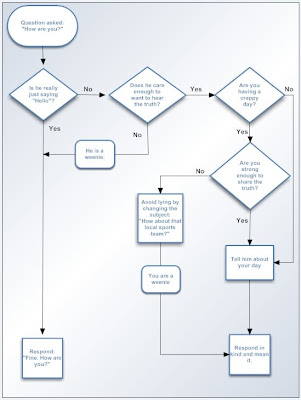How a Christian Found Jesus [naomi]
It was just a communion service, as simple as they come. It was a breaking point, a milestone, a point of no return. I remember it like it was one of those movie shots where they slow way down to notice that my tears were politely making their way down my face and falling onto my hands that were knit loosely together in my lap. It wasn’t that I was repenting from some heinous crime or that I had just met with God in some ultra-heavenly way that the mystics speak of… it was simply that I realized—in a very profound way—that I was a pretty big screw up and that there was no getting out of it. That’s what everything was about: The polite tears, the loose hands, the emotionless eyes. I was not perfect, and I needed to be.
I’ve always been a big proponent of works + faith. You know, the show me your faith without deeds and I will show you my faith by what I do [Jam. 2:18 NIV] stuff. It seemed so obvious: Loving God invokes, even requires, a response that comes out in the form of loving your neighbor as yourself. But what I found was that no matter how much I wanted to live up to that “simple” command, I always always messed it up—even in retrospect—and I see this often in the Christian life. It is a too much or too little predicament: One is either too arrogant, too patronizing, too dogmatic, or is inconsiderate, and childish. You can’t win.
As I sat there, silently letting my soul cry, staring at the back of people’s knees as they went to take communion, I had the unmistakable sense of drowning. For twenty some odd years I had been trying to win and it was only within the last year or so that I had stopped (praying, reading my Bible, etc.). I was just tired—of the game, of the trying, of the inevitable self-hatred—and now I was tired of feeling like crap every day… I was drowning in my own shit.
There is no way to win. What’s this ‘more than conquerors’ stuff? No, there is no winning in Christianity. There is only one more way that someone would like to fix me. I’ve heard it said before that we are told every day by some form of advertisement that we are incomplete without a certain product. Well, I would like to offer that every Sunday I find out from an authoritative figure in the pulpit more of how I am screwing things up. But that’s the rub: We need people who challenge us, and we need the disciplines just like we need grace. We win by losing, we live by dying, we are made whole by being broken. The whole of Christianity is a paradox and heck if I know how it’s all supposed to work out (and heck if you do either).
I sat there like this for what seemed like a very long time, my only movement being that I hunched lower in my chair and cradled my face in my hands. I felt a brush against my arm and looked to see my friend bearing two pieces of bread and two cups of juice in her hands. I couldn’t even meet her eyes as she placed half of the elements in my mascara stained hand and left me to my Lord.
I don’t remember exactly what was said or thought after that point, I only know that it was the beginning of a multi-year long journey of understanding that Jesus wasn’t on a timeline when he said that he loved us even while we were sinners. I always had the feeling that that was just the starting point, that he couldn’t love me while I’m sinning now that I’m a Christian. Good heavens, no. And, since I was gung ho for the gospel from the time I was a young pup, that grace was long past: No time for grace, only time for spiritual discipline and “growth”.
Now, I had been warned about the doctrine of works and all those crazy Catholics who think that they can say enough “Hail Mary’s” to get them into heaven (please read that with the naivety with which it was spoken to me) and yet I was also surrounded by people knocking themselves out under the guise of spirituality, encouraging others to do the same. There are still a lot of questions in my mind about the proper relationship between works and grace, but this I know: No one is worthy to eat at the table. That’s what makes it grace. My grace is sufficient for you. Thanks be to God.
...continue reading...








